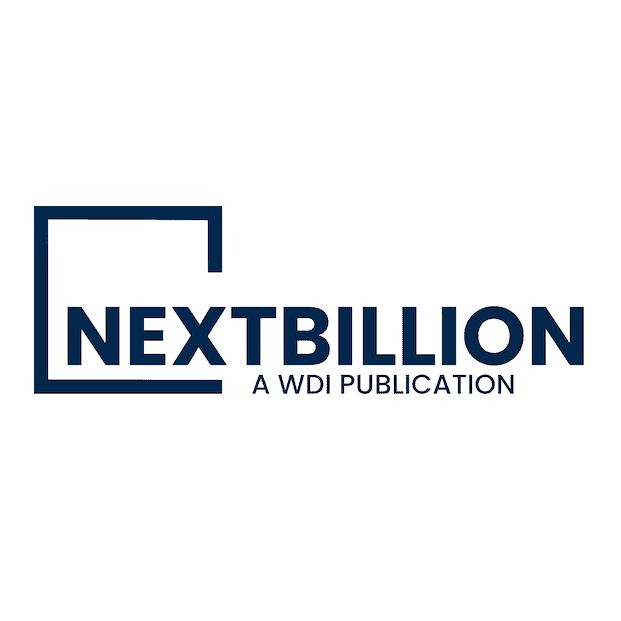-
A Global Effort to Unleash Local Data: How Open Mapping is Shaping Grassroots Climate Resilience Worldwide
As climate change intensifies, heatwaves, storms, wildfires and flash floods are increasing in scale and frequency worldwide. Yet as Atiya Anis at Humanitarian OpenStreetMap Team explains, many of the areas that are most vulnerable to climate impacts lack representation on existing maps, leaving communities and decision-makers without reliable data to address these crises. She explores how open mapping offers a solution to this issue by leveraging community-generated data to create accessible and reliable maps of vulnerable areas to support climate mitigation and adaptation efforts.
- Categories
- Environment, Technology
- Tags
- climate change, data, NGOs
-
Redefining Fairness: How Second-Degree Price Discrimination Can Bring Greater Access to Essential Goods and Services in Emerging Markets
Second-degree price discrimination is a pricing model in which customers are offered a lower price point in exchange for a lower level of quality or convenience, or a lower price per unit in exchange for purchasing a larger amount of the product. According to Wasiu Akintunde at Texas Tech University, this approach can benefit not only businesses, but also governments, NGOs and the communities they serve. He explores how this pricing model can be designed ethically and effectively to bring necessary products and services to multiple income segments in emerging markets.
- Categories
- Energy, Technology
-
Transforming How Financial Service Providers and Fintechs Leverage Data: A New Free Tool Aims to Separate the Signal from the Noise
In today’s digital finance landscape, data is one of the most valuable assets. Yet as Sarah Corley at AllianceDFA and Mallory Sheff at DataKind explain, data remains siloed, fragmented and underutilized across the sector — and this challenge is particularly acute in emerging markets. They argue that this isn’t just a missed opportunity, but a structural barrier to inclusion and innovation, and share a free, open-access learning platform designed to help fintechs and other financial service providers turn data into action to fuel customer growth and retention.
- Categories
- Finance, Technology
-
Measuring Systems Change in Agricultural Finance in Africa: Practical Metrics and Guidance for Detecting and Tracking Real Change
Despite employing 65-70% of the region's population and contributing 20-40% of national GDPs, Africa's agriculture sector receives less than 3% of its overall commercial credit — and in some countries, that share hasn't changed for decades. But according to Carla Legros, a consultant and strategist in agricultural and inclusive finance, that doesn't necessarily mean that progress has stalled. She proposes a set of metrics for assessing whether systems change is actually happening in the continent's agricultural finance sector.
- Categories
- Agriculture, Finance
-
From COVID to Foreign Aid Cuts: How Community-Led Financial Access Can Help Women and Their Communities Weather Crises
The COVID pandemic had a substantial impact on women’s financial access in many emerging economies — an impact that persists to this day. Now, as Kathy Guis at Kiva explains, a new crisis is building, as foreign aid cuts and broader macroeconomic uncertainty reduce funding to financial service providers focused on women’s inclusion. She argues that despite the urgency of other global issues, access to financial services matters, and explores how Kiva hopes to grow its support for women and other vulnerable populations despite the challenging funding environment.
- Categories
- Finance
-
The Rise of the Creator Economy in Emerging Markets: Empowering Youth and Marginalized Communities Through Web Monetization
The creator economy — a thriving ecosystem of online content creators ranging from influencers to bloggers — is a growing source of employment and income in developing economies, especially for younger generations. And as Matšeliso Thabane at the Interledger Foundation explains, alternative earning routes are emerging that can allow these creators to monetize their content in new ways. She explores how Web Monetization — a “pay-as-you-use” approach that enables small, real-time payments to content creators — can help this work become a viable career for creators in emerging markets.
- Categories
- Technology, Telecommunications
-
Connected Power: Ensuring Africa is Not Left in the Dark — or Offline
Sub-Saharan Africa has both the highest energy access and digital connectivity gaps in the world. As Ravi Suchak at Helios Towers explains, this is due not to a lack of demand, but to fundamental infrastructure barriers: Telecom towers and mobile networks require a reliable power supply, which is often absent or prohibitively expensive in rural areas, and electricity providers need consistent demand to de-risk rural energy investments. He explores a solution that addresses both of these needs: "connected power," a development approach that aligns energy and telecom infrastructure by positioning telecom towers as anchor customers for electrification projects.
- Categories
- Energy, Technology, Telecommunications
-
Bringing Digital Transformation to the Water Sector: How New Technologies Can Boost Water Access in LMICs
Digital technologies have the potential to revolutionize the management and distribution of clean water in low- and middle-income countries (LMICs). But according to Ellie Gabel, an environmental science writer at Revolutionized, many countries don't have access to these technologies, or lack the capacity to implement them. She explores this challenge in the context of Kenya, and discusses five essential factors that may aid or hamper digital transformation in the water sector across LMICs.
- Categories
- Technology, WASH










